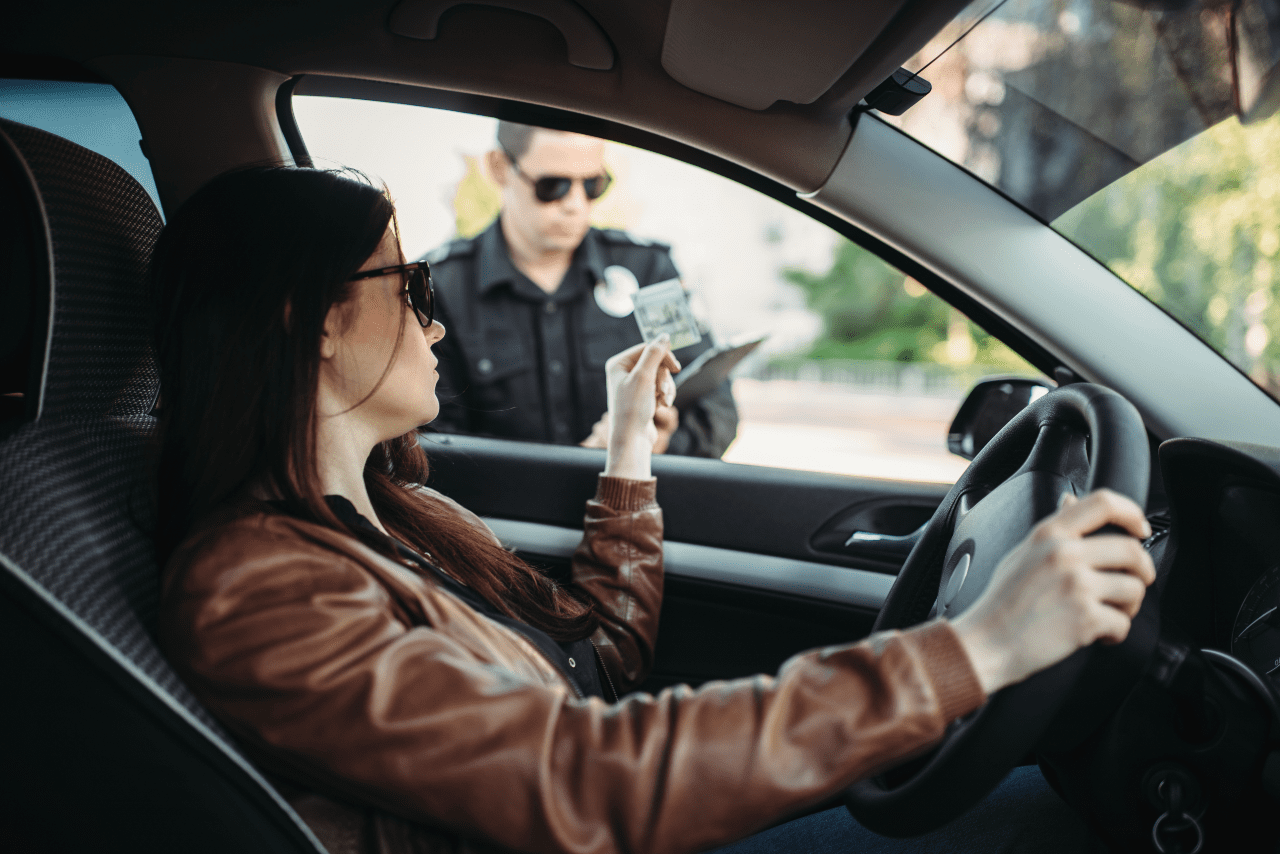Do I Have to Talk to Police After an Arrest for a Traffic Offense?

We all recognize the need for effective law enforcement, but we should also understand our own rights and responsibilities—especially in our interactions with the police. Ultimately, when a police officer pulls you over for a traffic offense, what you do and say can affect any legal proceedings that might follow. Whether the traffic stop ends in a simple moving violation or an arrest for a more serious crime, your choices are critical.
A traffic stop is one of the most frequent encounters between citizens and police. Usually, police officers will pull a vehicle over if they have reason to believe that some offense has occurred. You might feel anxious, irritated at the delay, or concerned about a possible citation. But it’s important to remain calm and understand your rights. We’ve broken down everything you need to know.
Do You Have to Answer Questions Asked by Law Enforcement Officers in Maryland?
The short answer is no, but there are a few exceptions. In general, you have the constitutional right to remain silent and you can’t be punished for refusing to answer a question. In fact, many lawyers advise you not to talk with the police without your lawyer present. Doing so could implicate you in a crime even without you realizing that you said anything wrong.
What Not to Say After a Traffic Stop
As a general rule of thumb, never make any admissions regarding how you were driving, nor admit that you were speeding or that you committed a traffic violation. If you decide to fight or contest your ticket at a later date, admitting guilt will lessen your chances for a successful outcome.
For example, if you’re stopped because an officer has a reasonable suspicion that you’ve been drinking and driving, it’s advised that you not respond to leading or entrapping questions like “Do you know why I stopped you?”, “Did you know you were weaving?”, “Did you know that you didn’t come to a complete stop?”, or “Did you know you violated the law?” It’s important to understand that you’re safeguarded by the Fifth Amendment, and by not answering questions like this, you’re protecting yourself from a possible conviction.
It’s not always easy to avoid answering these types of direct questions, and it may seem like not cooperating makes you look guilty. On the contrary, your responses may end up implicating you in the violation. However, if you feel as if you must respond, your best defense is to politely answer by saying, “I don’t know, officer.”
The Exceptions to the Rule
It’s important to note that there are a few exceptions. In the state of Maryland, you must provide your name to law enforcement officers if you are stopped and told to identify yourself. Likewise, if you’re pulled over for a traffic violation, the officer can require you to show your license, vehicle registration, and proof of insurance.
Additionally, Maryland’s implied consent laws require that drivers suspected of driving under the influence submit to chemical testing to determine if there are any drugs or alcohol in their system. Finally, an officer has the right to insist that you and any passengers exit the vehicle.
The bottom line is that you have the constitutional right to talk to a lawyer before answering questions, whether or not the police tell you about that right. When you do need legal help after a traffic stop in Maryland, look no further than The Law Office of Hillel Traub.
How to Remain Safe After a Traffic Stop in Maryland
Despite your feelings of nervousness and aggravation after a traffic stop, it’s important to note that officers are also concerned about possible threats to their personal safety while performing their duties. While you have the right to remain silent during a traffic stop, it’s also important that you follow some of the recommended safety procedures to ensure the traffic stop can be completed quickly and carefully. This includes safely pulling over to a well-lit place out of the flow of traffic, sitting calmly with your hands visible on the steering wheel, avoiding sudden movements, complying calmly if the officer asks you to step out of the vehicle, and providing the officer with your driver’s license and vehicle registration if asked.
Likewise, if you’re issued a citation, you will be asked to sign it. Signing is not an admission of guilt but rather an acknowledgment that you’ve received the citation. At this point, it’s highly recommended that you get in touch with an experienced Maryland traffic attorney who can fight to protect your rights.
Contact an Experienced Criminal Traffic Attorney in Baltimore After a Traffic Offense
If you’ve been cited for breaking a traffic violation in Maryland, discuss your case with The Law Office of Hillel Traub. Hillel, who’s previously worked as a lawyer for the Maryland MVA, has extensive experience working with people who are accused of traffic violations. With his unique insight into the agency’s operations, he can make a strong case for you that may help you avoid the worst penalties of a traffic conviction.
Hillel has a proven track record of eliminating or reducing the fines and penalties associated with traffic tickets, citations, and other violations. The legal team at Hillel Traub is here to fight for your rights. To discuss your traffic ticket for free, call (410) 580-1100 today or complete our online contact form today.